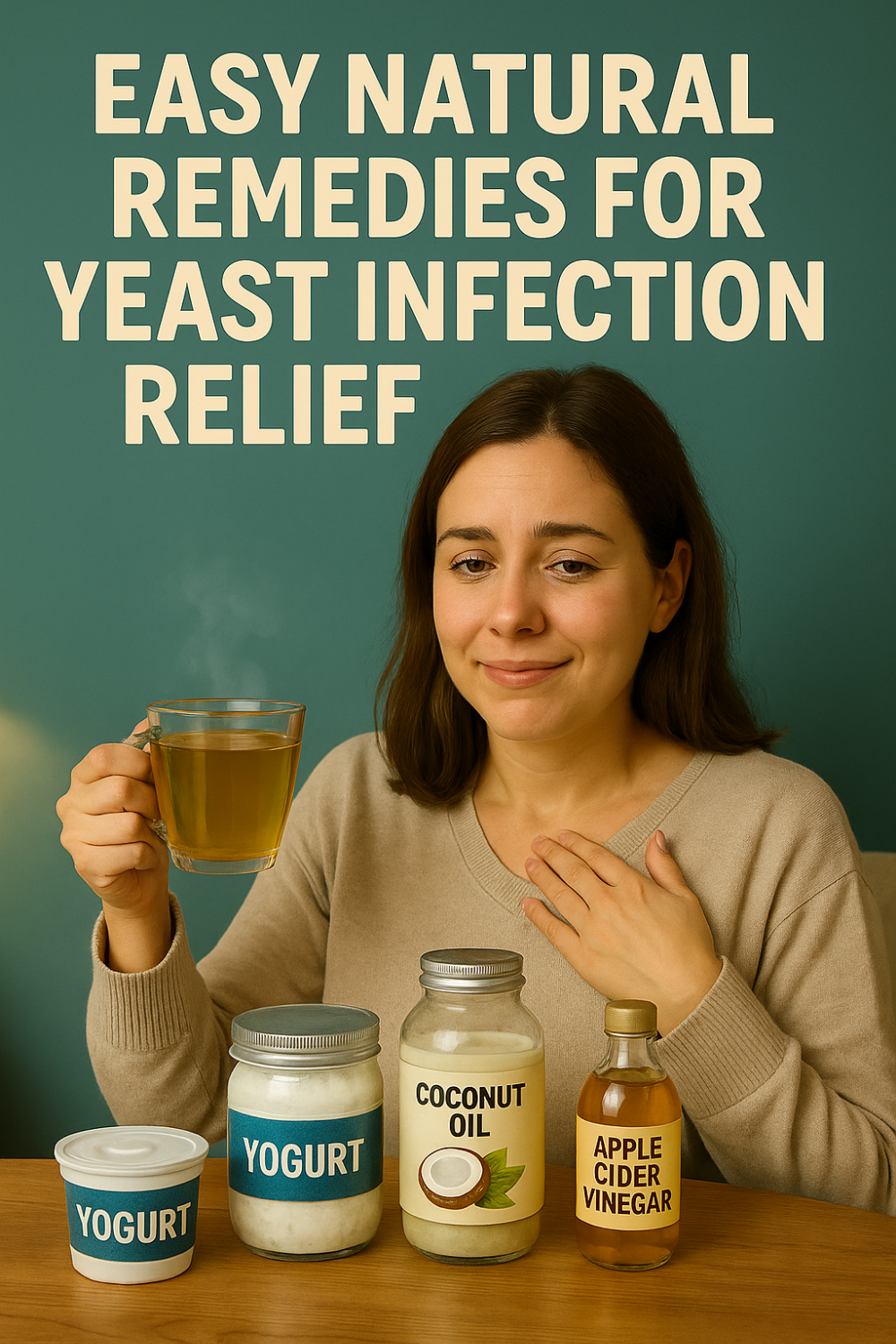Yeast infections can be uncomfortable, causing irritation and disrupting daily life. Fortunately, effective natural remedies provide gentle, fast relief from yeast infection symptoms at home. Utilizing antifungal ingredients like yogurt, coconut oil, and apple cider vinegar, these home treatments help balance your body’s natural flora, soothe irritation, and promote quicker recovery—without harsh chemicals or medications.

- What Causes Yeast Infections?
- Benefits of Natural Remedies for Yeast Infections
- Effective Natural Remedies You Can Use at Home
- Foods That Help Prevent Yeast Infections
- Lifestyle Tips for Maintaining Healthy Balance
- When to See a Doctor
- Frequently Asked Questions
What Causes Yeast Infections?
Common causes include:
- Antibiotic use (reducing beneficial bacteria)
- Hormonal fluctuations (pregnancy, menstruation)
- High sugar intake
- Tight or synthetic clothing
- Stress and weakened immunity
Identifying these factors helps manage and prevent yeast infections effectively.
Benefits of Natural Remedies for Yeast Infections
Choosing natural treatments has several advantages:
- Safe, gentle, and non-irritating
- Quickly reduces discomfort and itching
- Restores healthy bacterial balance
- No harsh chemicals or side effects
- Affordable and easy to use at home
Effective Natural Remedies You Can Use at Home
1. Yogurt (Probiotics)
Unsweetened yogurt with live probiotics applied topically or eaten regularly restores beneficial bacteria, reducing yeast growth.
2. Coconut Oil
Coconut oil contains natural antifungal properties. Apply it directly to affected areas to soothe irritation and inhibit yeast.
3. Apple Cider Vinegar Bath
Dilute ½ cup apple cider vinegar in warm bath water. Soak for 15–20 minutes to relieve itching and rebalance pH levels.
4. Garlic
Garlic contains antifungal properties. Including garlic in your diet helps fight yeast overgrowth internally.
5. Tea Tree Oil
Dilute tea tree oil with coconut oil and apply externally (never internally) to soothe irritation and reduce yeast symptoms quickly.
Foods That Help Prevent Yeast Infections
Eating probiotic-rich foods helps prevent yeast overgrowth:
- Unsweetened yogurt and kefir
- Fermented vegetables (kimchi, sauerkraut)
- Garlic and onions (antifungal)
- Leafy greens and lean proteins
- Limiting sugary and processed foods
Lifestyle Tips for Maintaining Healthy Balance
- Wear breathable cotton underwear and loose clothing.
- Keep the vaginal area clean and dry.
- Avoid scented hygiene products or harsh soaps.
- Manage stress through mindfulness or meditation.
- Maintain a balanced diet low in refined sugars.
When to See a Doctor
Seek professional care if:
- Symptoms worsen or persist after home treatment
- Experiencing severe discomfort or pain
- You’re pregnant or have recurring infections
- Unsure if symptoms indicate a yeast infection
Frequently Asked Questions
How quickly do natural remedies work for yeast infections?
Most people experience relief within 24–48 hours, but complete recovery usually takes several days.
Is coconut oil safe to use internally?
Yes, pure coconut oil is safe for external and internal use, but consult your healthcare provider if unsure.
Can natural remedies replace medication for severe infections?
For severe or recurrent infections, professional medical treatment may be necessary. Natural remedies provide supportive relief.
Are these remedies safe during pregnancy?
Generally, yes, but always consult your healthcare provider first.
Can probiotics alone cure yeast infections?
Probiotics help restore balance, but severe infections may need additional treatment.
Is apple cider vinegar safe to use undiluted?
No, always dilute apple cider vinegar to avoid skin irritation.